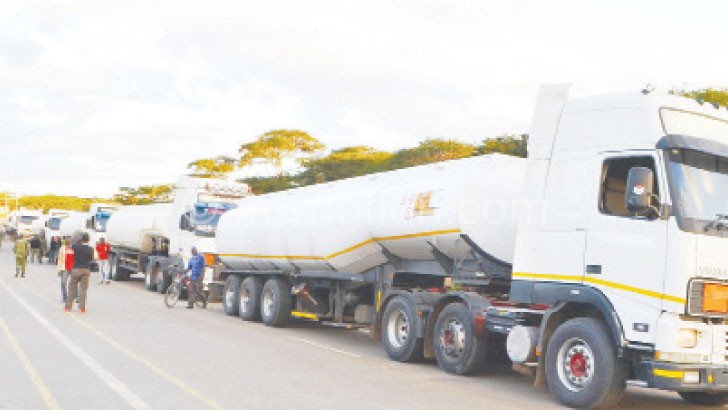PIL cuts by half fuel Imports via beira
Petroleum Importers Limited (PIL) has cut by half its fuel imports through the Beira route in Mozambique, it has been established.
Malawi imports 60 percent of its fuel through the Beira route in Mozambique, 10 percent through Nacala also in Mozambique and 30 percent comes through Dar es Salaam in Tanzania.
Howver, the civil strife in Mozambique has prompted PIL to use the pipeline in Zimbabwe as an alternative.
This means the Beira route is only transporting half of its normal volume with the rest being taken up by the Zimbabwe pipeline, which links the port of Beira in Mozambique to Masasa Fuel Depot in Zimbabwe and thereafter the fuel is hauled by road to Malawi, a distance of about 600 kilometres (km).

In July this year, three fuel tankers destined for Malawi were burnt by insurgents in Mozambique.
PIL general manager Enwell Kadango said in an interview last week, the Zimbabwe route is shorter than the normal Beira route.
He said the route is about 600 km to Blantyre while the normal Beira route is 850 km.
However, Kadango said the only setback is that the country is paying for using Zimbabwe’s pipeline.
“We are incurring extra costs because the fuel is piped from Beira to Masasa depot in Zimbabwe then it is ferried to Malawi by road. However, the cost is manageable,” he said.
“We started doing it in July, and now this is October, this means that there is containment. But if you see fuel prices going up in future, it might be because of the move in the global prices and not the route,” he said.
Earlier, PIL indicated that the tankers using the Beira route are being escorted by a military convoy for about 200 km.
Although no incidence has been reported so far, Kadango said PIL cannot close the Zimbabwe route in case something happens in Mozambique.
Malawi Energy Regulatory Authority (Mera) consumer and public relations manager Fitina Khonje agreed with Kadango that the pipeline costs will in no way affect pump prices.
“The importers are compensated for that,” she said.
On average 20 fuel tankers were using the normal Beira route a day before the instability.
Pump prices in the country were last increased in June.
Currently, petrol is selling at K788.30 per litre, diesel is at K766.90 per litre while paraffin is selling at K609.80 per litre.
According to Mera, since the last review of the In Bond Landed Cost (IBLC) of petroleum products in June 2016, the kwacha has depreciated by 2.05 percent against the dollar trading at K729.63 on October 3 2016 from K715.00 in June 2016.
According to the automatic fuel pricing mechanism (APM), all the three products qualified for an upward price revision in October because of the change in landed costs were beyond the plus of minus five percent trigger limit, but Mera board cushioned the increases in the landed cost through the price stabilisation fund. n





